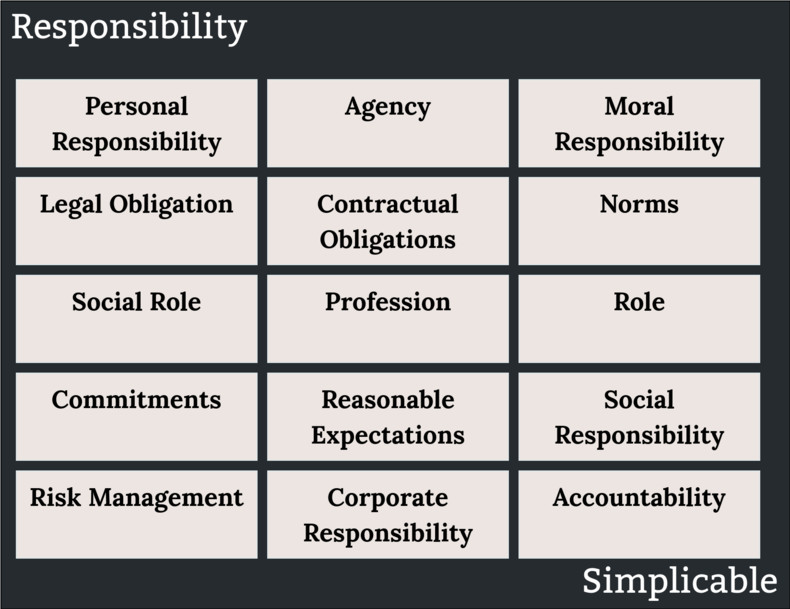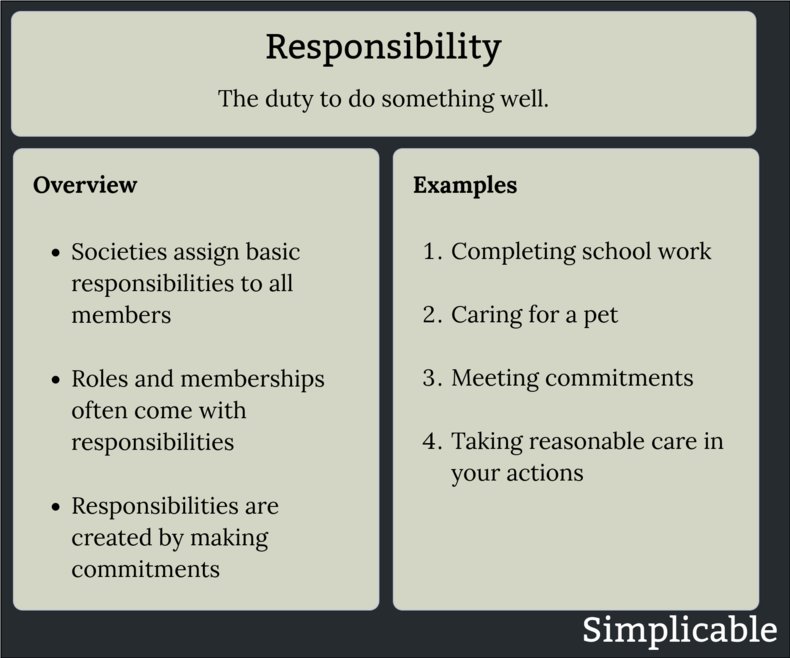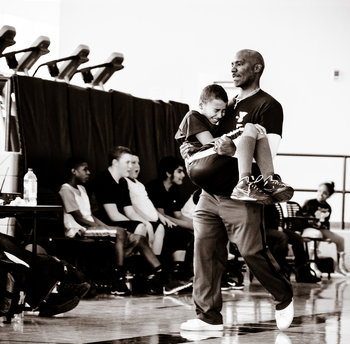
Completing school assignments. | Driving safely. |
Trying to meet commitments you have made. | Working hard at work. |
Being friendly and helpful to customers. | Maintaining a clean living environment. |
Trying to do good for people and planet. | Civic engagement such as voting. |
Being prepared for school each morning. | Studying for tests. |
Eating a reasonably healthy diet. | Taking out insurance on your house and car. |
Living up to your moral values. | Exercising and caring for your body. |
Owning up to your mistakes. | Apologizing as appropriate. |
Trying to resolve conflict in a reasonable way. | Meeting deadlines. |
Sticking to a budget. | Living within your means. |
Personal Responsibility
The responsibility to do positive things with your abilities, talents and resources.Agency
Agency is your ability to influence what happens to you. Individuals with a strong sense of agency are more likely to take responsibility for their successes and failures as opposed to blaming external factors such as systems, circumstances, bad luck or other people. An individual who completely and truly lacks agency is not responsible for themselves. For example, a very young child has no agency.Moral Responsibility
The duty to do good and to do no harm. For example, the responsibility of the strong to help the weak.Legal Obligation
Responsibilities that are dictated by and enforced by a state. For example, a responsibility to take care not to hit pedestrians when driving a bicycle.Contractual Obligations
Responsibilities that are agree to by parties to a legal contract. For example, the responsibilities of business partners may be specified in a contract.Norms
Norms are responsibilities that are expected in a culture without being enforced by written rules. This respects people's intelligence and allows for some flexibility.Social Role
Responsibilities based on your position in a social system. For example, the responsibilities of parents, children and spouses.Profession
The responsibilities of your profession such as an auditor who has a duty to report serious financial irregularities to authorities.Role
The responsibilities of your job such as a construction site manager who has a duty to prioritize safety.Commitments
Responsibilities are often based on your agreement. For example, a construction site manager who commits to meeting a budget for a particular project or task.Reasonable Expectations
In some cases, you still have responsibilities even if you don't make a commitment. For example, you may reasonably expect that a ski hill will take steps to ensure your safety even if they state in a legal notice they are not responsible for anything that happens to you on their property.Social Responsibility
A responsibility not to harm people or planet on the path to your goals.Risk Management
It is often viewed as a responsibility both at the personal and organizational level to take reasonable steps to manage risk.Extended Producer Responsibility
Extended producer responsibility is the idea that producers of goods and services are responsible for the end-to-end impacts of their products such as a fast food restaurant that is responsible when their packaging end up floating in the ocean.Accountability
Accountability is the principle that you still have to answer for results if you delegate or outsource a responsibly. For example, a firm that outsources manufacturing is still responsible for partners that mistreat people or damage the environment. In other words, you can't avoid responsibility by having a third party do something irresponsible for you.Summary
The following are the basic types of responsibility.
Overview
Responsibility is the duty to do something and is created by society, roles, memberships and commitments.
| Overview: Responsibility | ||
Type | ||
Definition | A duty to act and to answer for the results of your actions. | |
Related Concepts | ||






































